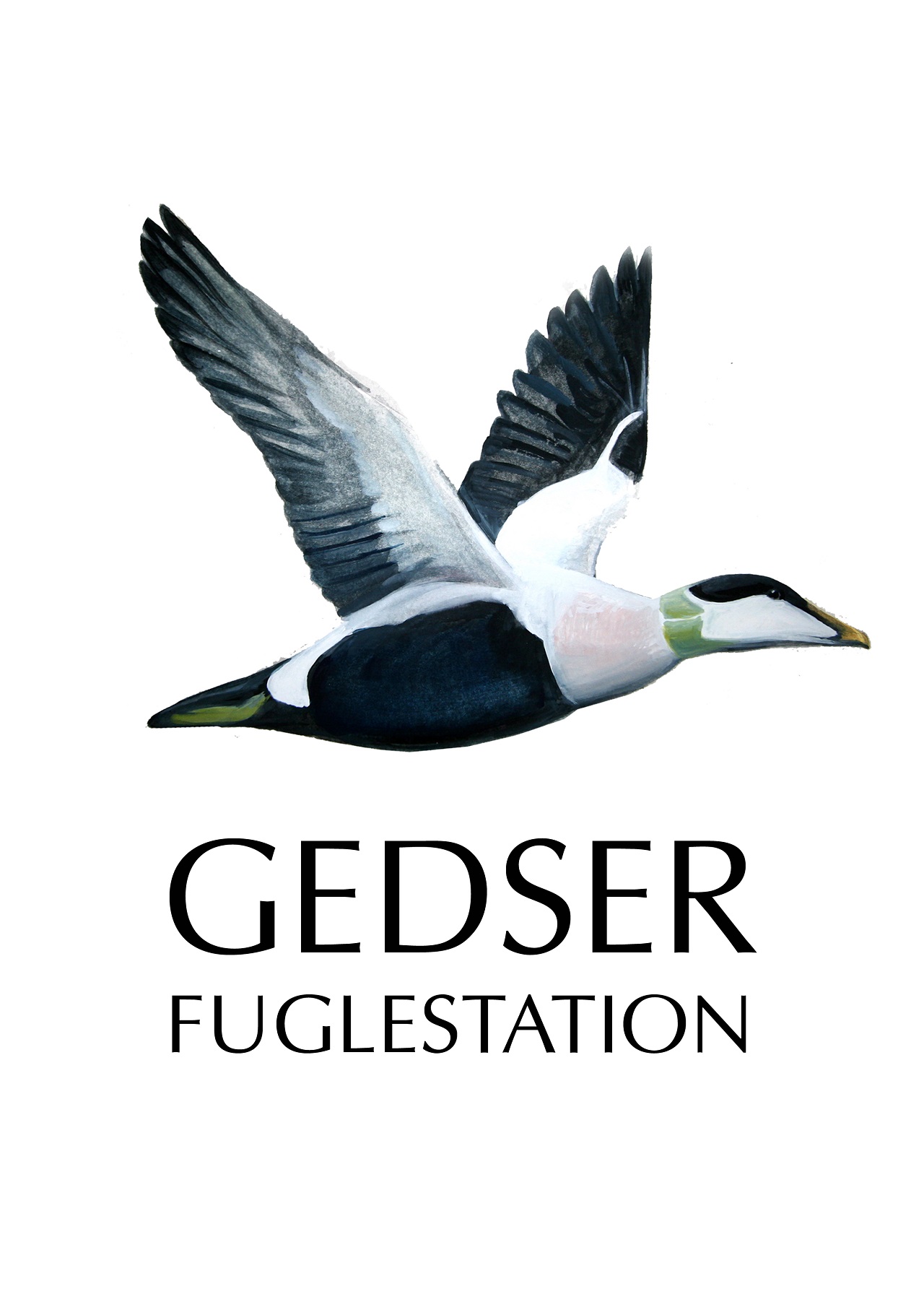Gedser Fuglestation Blog
Her på Gedser Fuglestations blog bringes korte nyheder i dagbogsformat om hændelser på fuglestationen.
Falcon party with Honey Buzzard guests
Ringing
It was still a bit windy in the garden so we were rather surprised that the first round was pretty good. After it slowed down quite fast and we also got some rounds without birds. A nice surprise in the nets was a Sparrowhawk “Spurvehøg”, the first that Alix ringed.
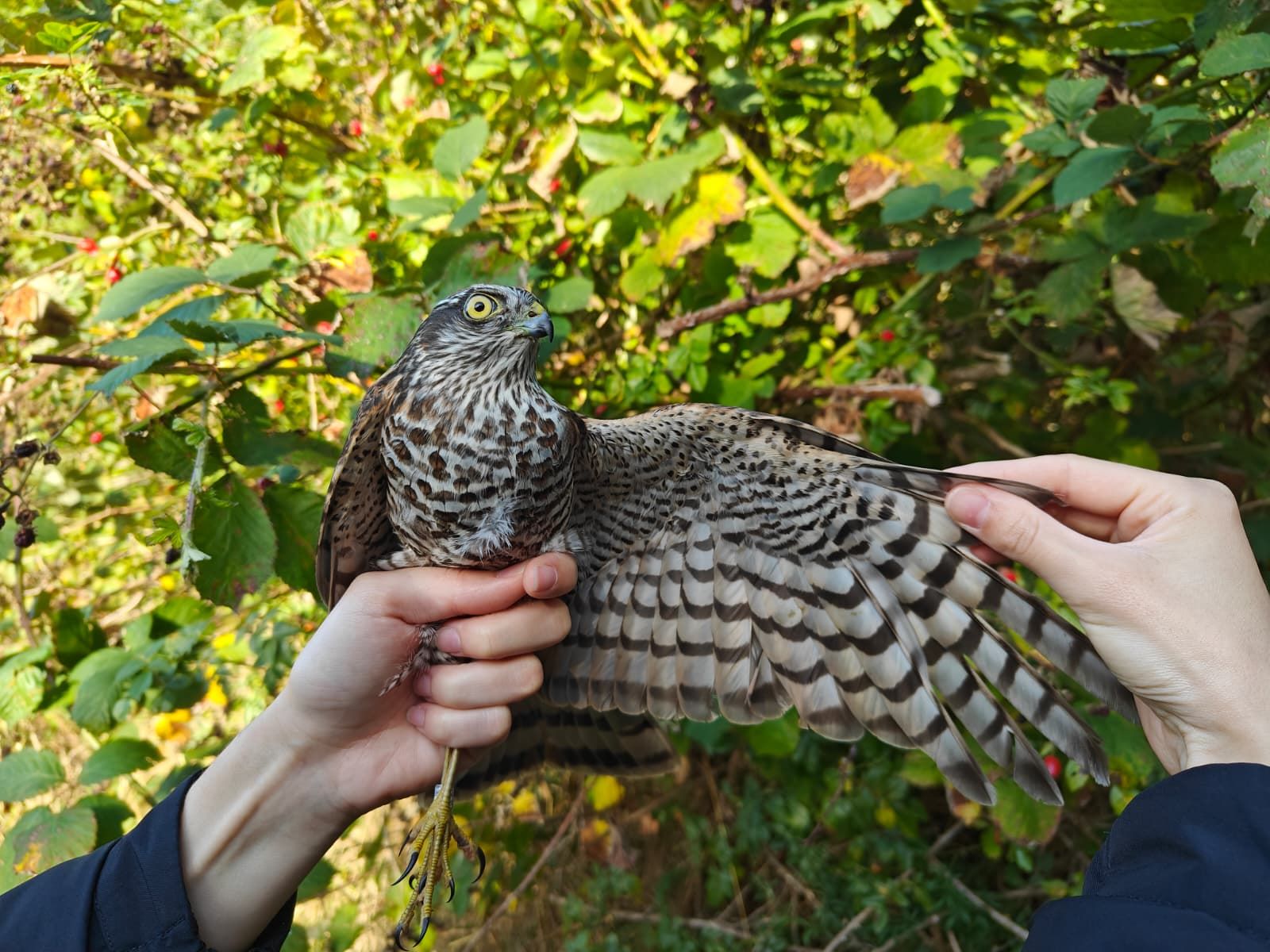 Sparrowhawk "Spurvehøg"
Sparrowhawk "Spurvehøg"
Also a picture of a Redstart “Rødstjert”, an Africa migrant that we do not have in the nets so often anymore and you always don´t know when you see the Africa migrants the last time.
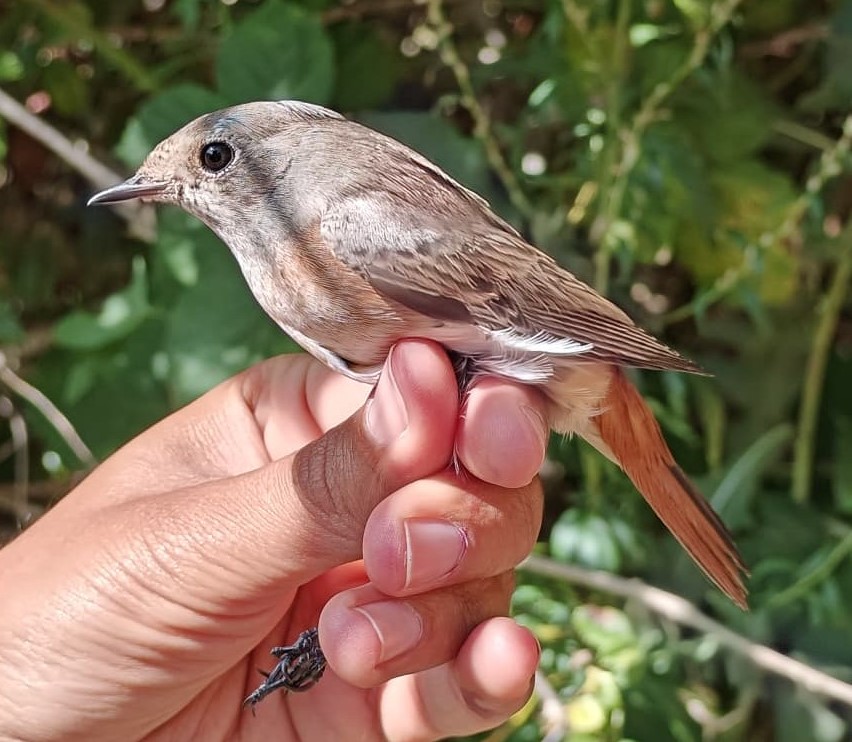 Redstart/ Rødstjert
Redstart/ Rødstjert
Moths caught in the traps
This night brought 22 species. Of one moth sitting on the wall I thought it was the Silver Y (Gammaugle) a common moth for this time of the year, but Gerd said have you seen the confusa on the wall. I said where did you see it and than he showed it and it was the Dewick's Plusia (Sølvdråbugle). Both for me and Hanelie a new species. It is a species you can see all over Denmark, but it is seen more at the eastern islands of Denmark. Evidently this is the moth of the day, but we had another beautiful Moth: the Frosted Orange (Burreugle) and of this you will find also a picture below.
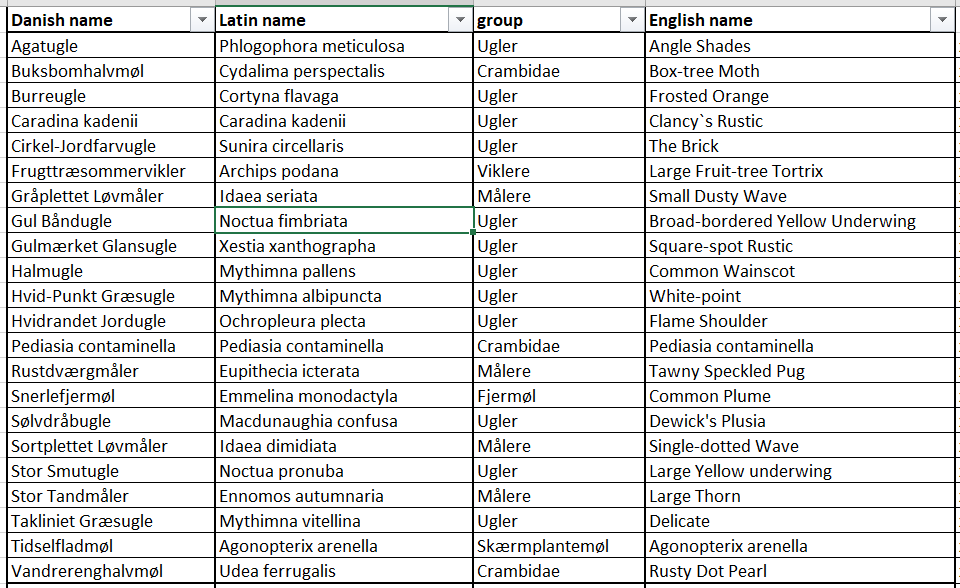
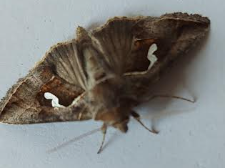
Dewick's Plusia (Sølvdræbugle)
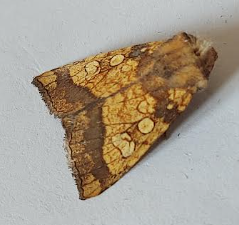
Frosted Orange (Burreugle)
Migration: Today at the point we had another nice day observing the migration. I’m beginning to feel like my blog entries are becoming a little repetitive, so to make it more exciting, here is our day in the form of a limerick:
Once again, the day was windy, so we sheltered against the wall
There were many weekend observers out, having quite a ball
Today we had more ducks flying across the ocean
Many raptors also, with three red-footed falcons causing quite the commotion
To admire them better we moved to the open, our chairs blowing over in the squall
One of the nicest birds we saw today was the little gull
Moving like a tern but with a beautiful pattern, this bird is never dull
The raptor we saw migrating in the largest numbers was the sparrowhawk
A fast and agile bird, watching it makes me wish I could fly too, instead of walk
All were flying hard against the wind, hopefully they catch a lull
It’s exciting to see the change in species every day
Each new silhouette, colour, and shape flying quickly away
The differences are becoming more clear
With helpful advice from locals being very dear
If only the birds would for a little longer stay!
Overall, it was a productive day out on the point: we observed 1543 individuals of 35 species with help from our fellow birdwatchers. It’s quite nice standing in the sunshine overlooking the ocean, and I’m looking forward to seeing new species tomorrow, as it seems that different birds are passing through each day. Let’s see what tomorrow brings!
At the station: Mads Elley, Grace Marsh, Alix Bortolussi, Robert Luttik and Hanelie Sidhu
